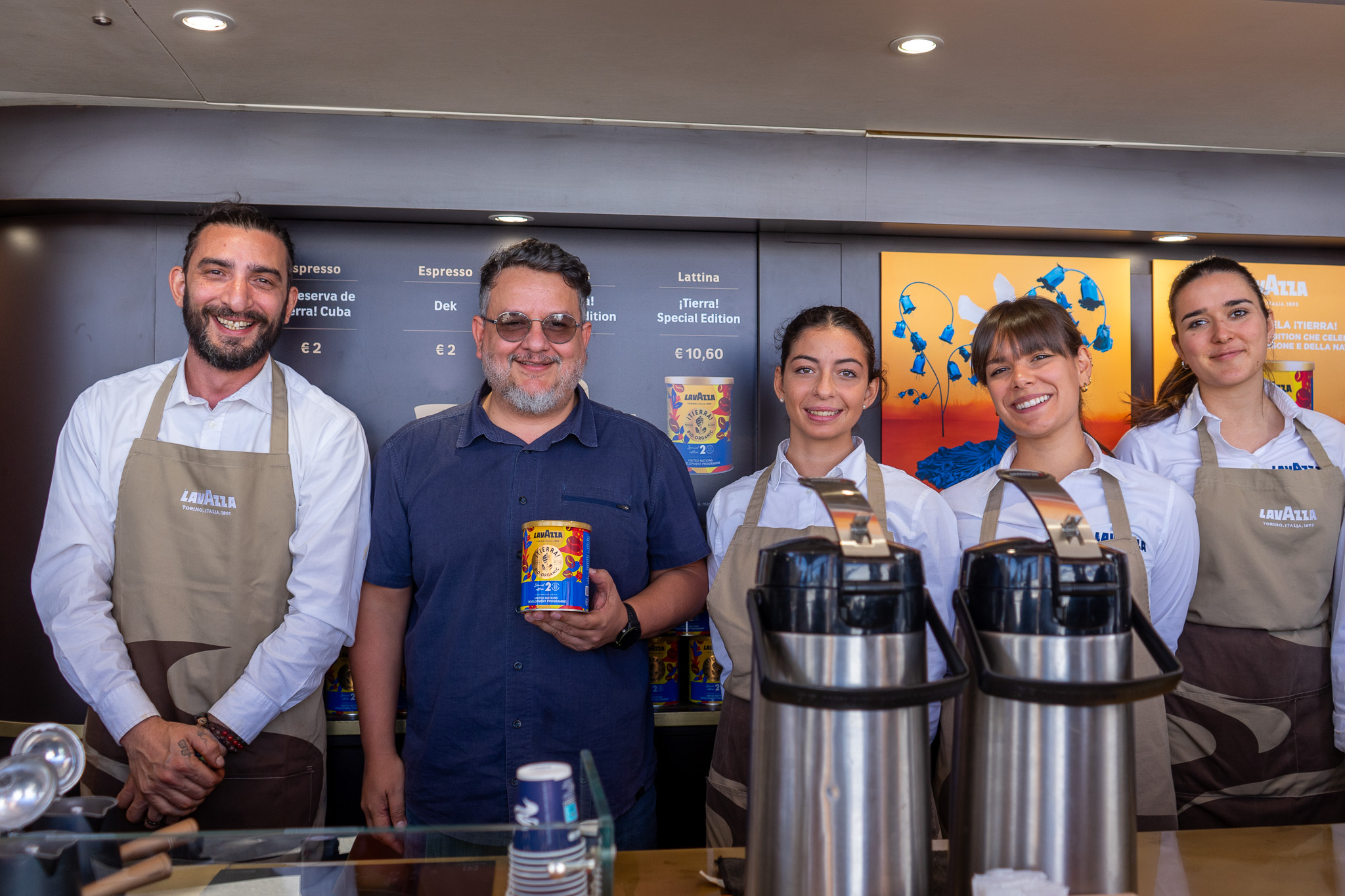
Ecuador’s persistent effort to align the climate, agricultural and trade agendas has resulted in the entry to market of the first policy-based, nationally certified deforestation-free coffee. The coffee, sold by the international company Lavazza under its ‘¡Tierra!’ special edition brand, infuses sustainability into our daily coffee ritual.
Working in partnership with UNDP, UN-REDD, the GCF, the GEF, and companies like Lavazza, the Government of Ecuador developed a public-private framework to formulate sustainability policies, issue regulations, improve farmer practices, establish a national certification scheme and mobilise commercial partnerships with coffee and cocoa companies. The goal of this effort is to contribute to the climate change mitigation goals of the Paris Agreement by protecting forests and promoting sustainable livelihoods, in line with its Article 5.
Agriculture is one of the major causes of global deforestation and is notably intractable. In Ecuador, the PROAmazonia programme, which is funded by the GCF and the GEF, has served as an incubator of policy innovations and partnership efforts, connecting the environment, agriculture and trade sectors, from their ministers of government to the field level. This effort has been supported by the UN-REDD Programme, which provided technical assistance, as well as by the UNDP-Lavazza partnership for deforestation-free coffee, which was established in 2019 to create an enabling environment to demonstrate the business case for this kind of public-private engagement. This development innovation was conducted in close cooperation with many farmers and their cooperatives in the 23 provinces bordering Ecuador's Amazon rainforest. The goal was to improve the quality and productivity of the coffee and cacao crops, while also protecting forests.
The PROAmazonia programme and the UN-REDD partnership helped Ecuador to convene policy fora, to build the regulations for sustainable production (including a national certification scheme on “deforestation-free”), to enhance sustainable production practices (so to increase productivity and quality, and to sell to global companies and at better price), and to build a robust traceability system. The engagement of global companies like Lavazza provided business advice and opened new opportunities in both international and specialty markets.
Delivery of Ecuador’s vision required the establishment of a set of national institutions and instruments to deploy the policy. In particular, the national forest & land monitoring systems was upgraded to better track a wide range of information, from farm practices to carbon, and to land-use changes. Satellite information was combined with farmer data (provided through personal cellphones), with independent field surveys regularly conducted. A QR code was also created to accompany the commodity, from the field to the cup. A comprehensive digitalisation is underway to uphold the integrity and transparency of the system.
Farmers are seeing the benefits of new techniques in higher prices and wider recognition of their work. Seventeen tonnes of deforestation-free coffee were shipped to Lavazza for international distribution as part of the first shipment in this pilot project. Lavazza introduced its Ecuadorian coffee in a limited-edition tin ahead of a critical EU ruling mandating deforestation-free coffee production by January 2025. Investing in responsible supply chains is not only environmentally beneficial but also crucial for the long-term viability of businesses. The deforestation-free certification includes comprehensive geospatial surveys and third-party verification to ensure that the coffee meets the highest standards of environmental integrity.
This wide-ranging public-private partnership is not only improving the quality of life for farmers, but also creating agricultural and forestry policies that are helping Ecuador to achieve its Nationally Determined Contributions (NDCs) to the Paris Agreement. The effort has so far supported over 70,000 local producers, 40 percent of whom are women, through improved infrastructure across 18 gathering centres. Much of the growing demand for coffee in the next 20 years can be met by regenerating degraded land and improving productivity. Ecuador’s approach emphasizes economic inclusion and is grounded in the knowledge of local and Indigenous communities, ensuring that sustainable agriculture practices align with their deep understanding of the ecosystems.
To learn more about the deforestation-free coffee initiative and sustainable coffee production: https://climatepromise.undp.org/deforestation-free-coffee
“PROAmazonia has taught us to take care of the environment, to not cut down the forest. For us it also pays off to leave the forests standing, this way we can demand better prices for our coffee.” - Gonzalo Castillo, coffee farmer.
“Ecuador has that potential because it has good coffee. It has an environment, biodiversity, care for biodiversity that is very, very important. Above all this is a collaboration between public sector and private sector. I think that’s the key. If we don’t work together, the public-private and international organizations like UNDP we can’t reach these results.” - Veronica Rossi, Sustainability Manager, Lavazza Group.
"The deforestation-free coffee certification in Ecuador has been a significant achievement, driven by strong collaboration between local producers, the government, UNDP, and the private sector. It marks a milestone that reflects the commitment of small producers to both forest conservation and product quality.” - Patricia Serrano, former manager of PROAmazonia and currently UNDP regional advisor for climate & forests.
“This is not a project, it’s a movement. And I would be fascinated to see it last, not as a project, but as a movement that Ecuador can promote further.” - Arturo Santos, Regional Advisor, UNDP Climate & Forests



